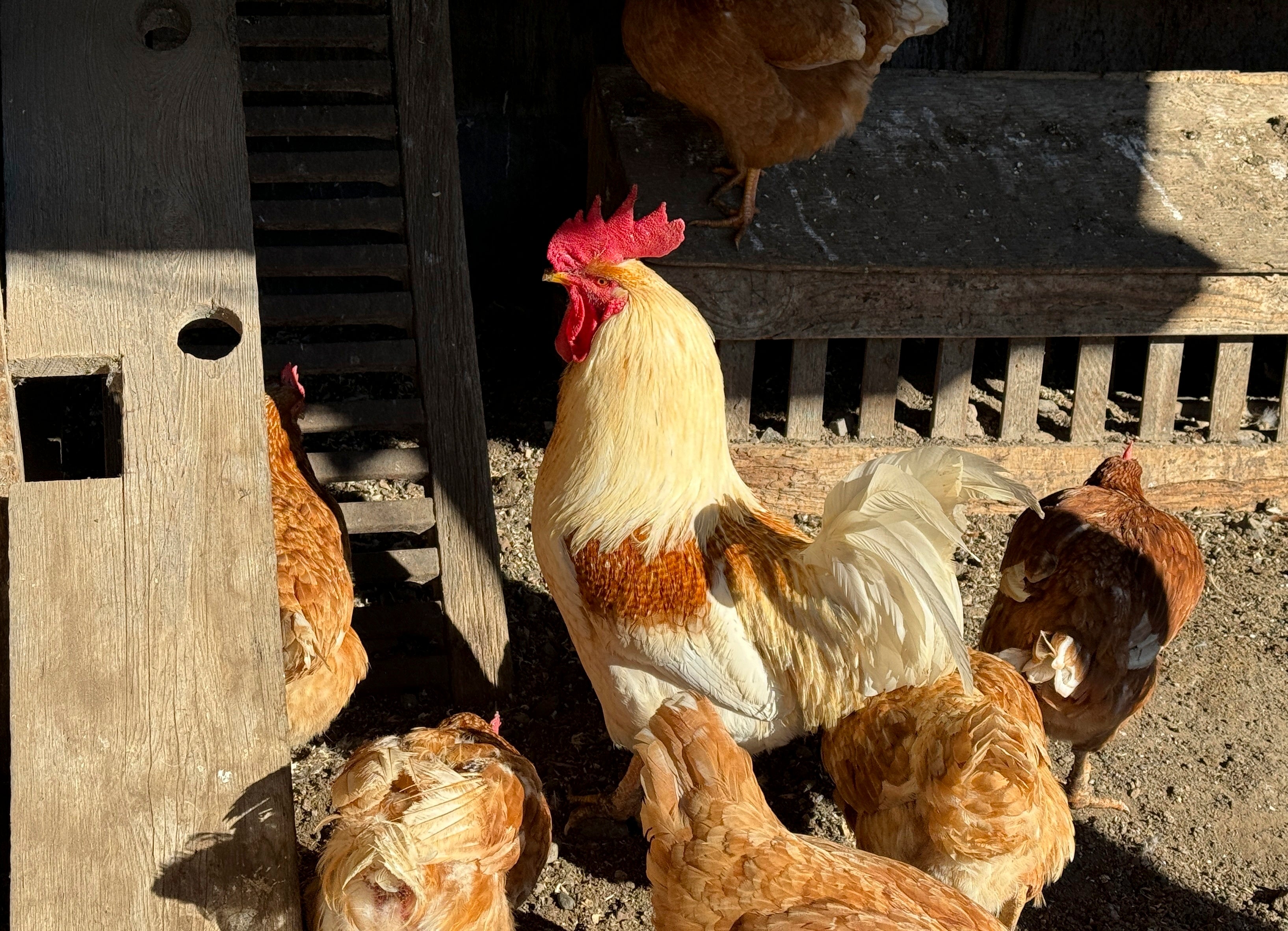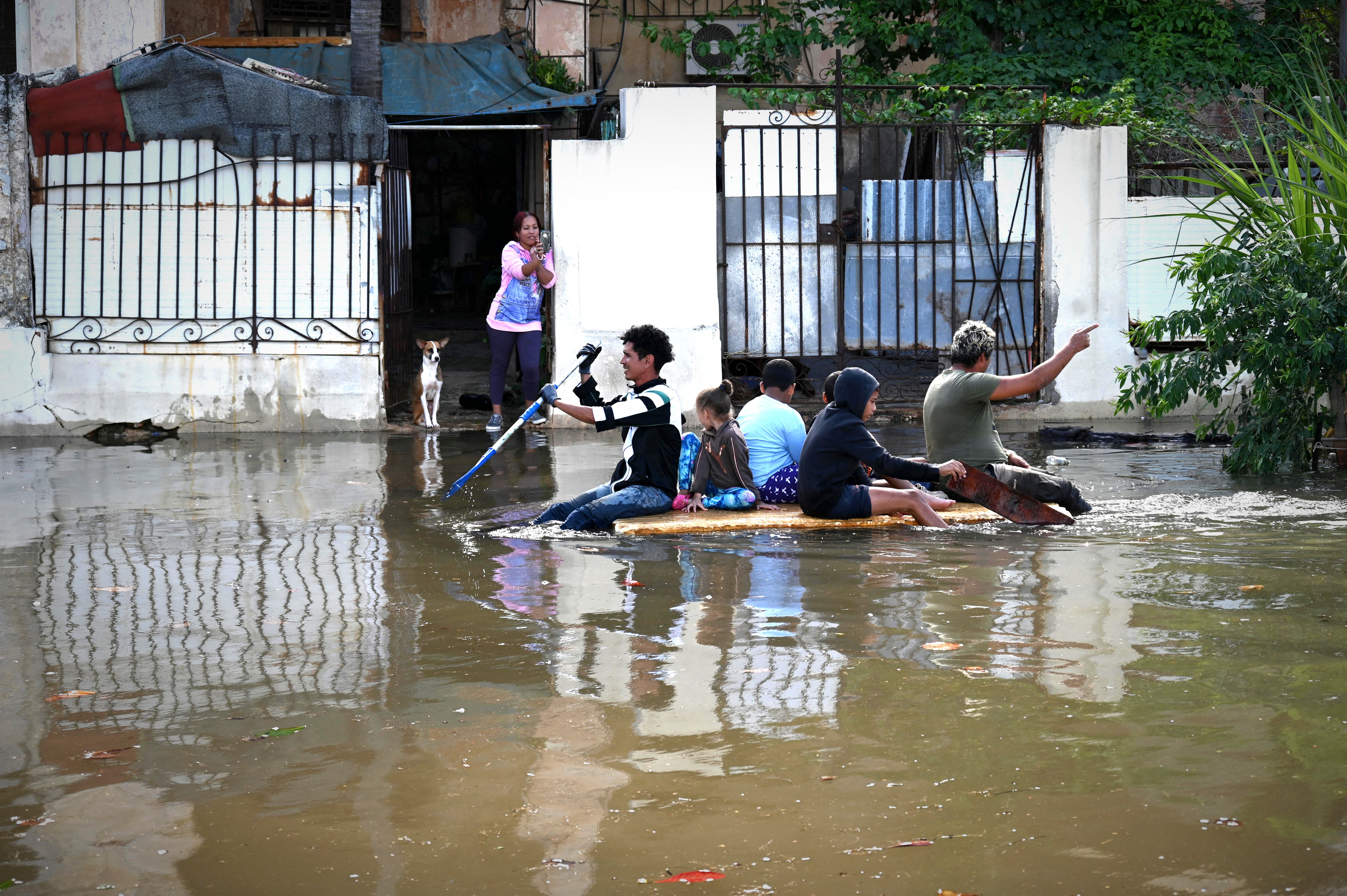Cuba charges 30 over massive chicken heist
CCTV captured trucks transporting the chicken off site

Your support helps us to tell the story
From reproductive rights to climate change to Big Tech, The Independent is on the ground when the story is developing. Whether it's investigating the financials of Elon Musk's pro-Trump PAC or producing our latest documentary, 'The A Word', which shines a light on the American women fighting for reproductive rights, we know how important it is to parse out the facts from the messaging.
At such a critical moment in US history, we need reporters on the ground. Your donation allows us to keep sending journalists to speak to both sides of the story.
The Independent is trusted by Americans across the entire political spectrum. And unlike many other quality news outlets, we choose not to lock Americans out of our reporting and analysis with paywalls. We believe quality journalism should be available to everyone, paid for by those who can afford it.
Your support makes all the difference.Cuba has charged 30 people for stealing 133 tonnes of chicken and selling them on the street.
Thieves took the meat, in 1,660 white boxes, from a state facility in the capital Havana, and used the sale proceeds to buy refrigerators, laptops, televisions and air conditioners, according to a Cuban state TV broadcast.
The crime is a rare major heist at a time of food shortages in the communist-run nation.
The chicken had been earmarked for Cuba`s “rationbook” system introduced after the late Fidel Castro’s 1959 revolution to provide subsidized staples for all.
Rigoberto Mustelier, director of government food distributor COPMAR, said the quantity stolen was the equivalent of a month`s ration of chicken for a medium-sized province at current distribution rates.
The amount of chicken available via the rationbook has fallen sharply in recent years as economic crisis has brought scarcities of food, fuel and medicines.

Many subsidized products reach the populace days, weeks or even months later than scheduled, leaving people who make an average wage of 4,209 pesos a month ($14 at the informal exchange rate) to seek other ways to make ends meet.
Authorities did not say when the chicken theft took place, but noted it likely occurred between midnight and 2 am when they detected fluctuations in the temperature of the cold storage facility.
Video surveillance captured trucks transporting the chicken off site.
The 30 charged included shift bosses and IT workers at the plant, as well as security guards and outsiders not directly affiliated with the company, the TV report said.
The suspects, if found guilty, could face as many as 20 years in prison.
Crime has increased alongside economic hardship since the end of the COVID-19 pandemic, though reports of large scale thefts like this one are still a rarity on the Caribbean island.
The thefts come after extreme weather battered the region.
An unusually strong cold front slammed Cuba‘s north coast on Tuesday, with white-capped waves flooding streets with seawater, causing scattered power outages and littering the capital Havana with blowing trash and downed branches.

Gusts soared to 62 mph (100 km/h) in western parts of the island as squalls and strong winds advanced south from Florida, which saw similar conditions earlier this week.
Havana residents hunkered down overnight as lights flickered on and off but slowly emerged onto the streets Tuesday morning bundled in jackets and hats as temperatures plunged to as low as 55 F (12 Celsius), unusually chilly for Cuba.
At dawn, the water flowed through some city streets like coastal rivers, moving jellyfish, seaweed and flotsam several blocks landward.
“This really is something new ... we’re not used to this kind of cold,” said Havana resident Jaqueline Dalardes as she strolled along the city’s Malecon esplanade. “The climate has changed.”
Join our commenting forum
Join thought-provoking conversations, follow other Independent readers and see their replies
Comments